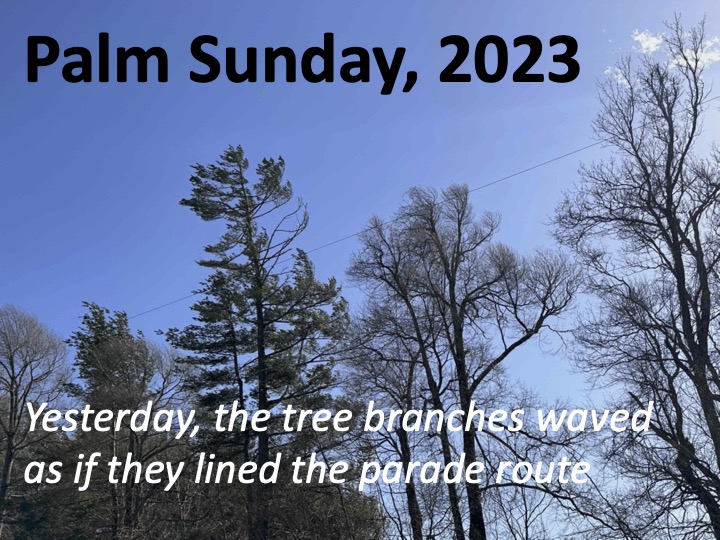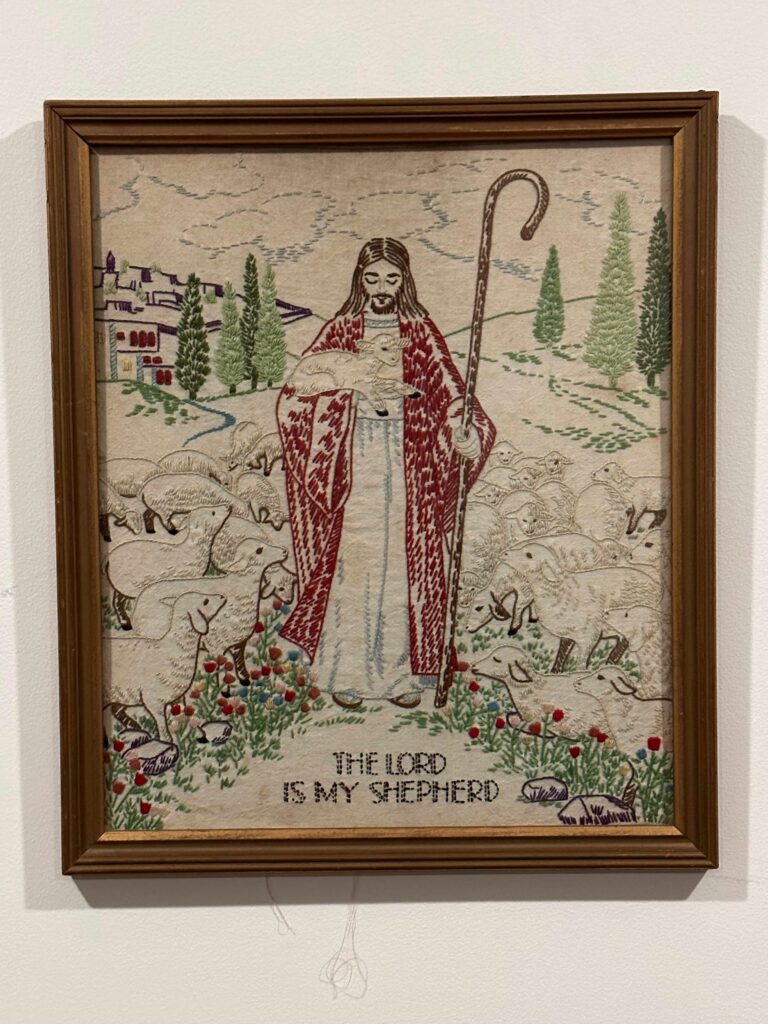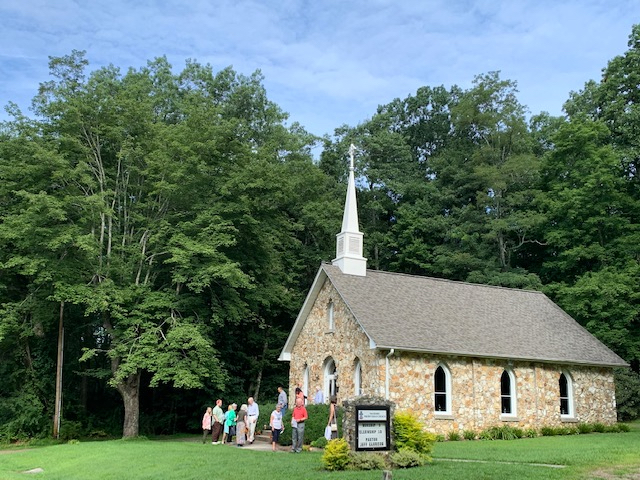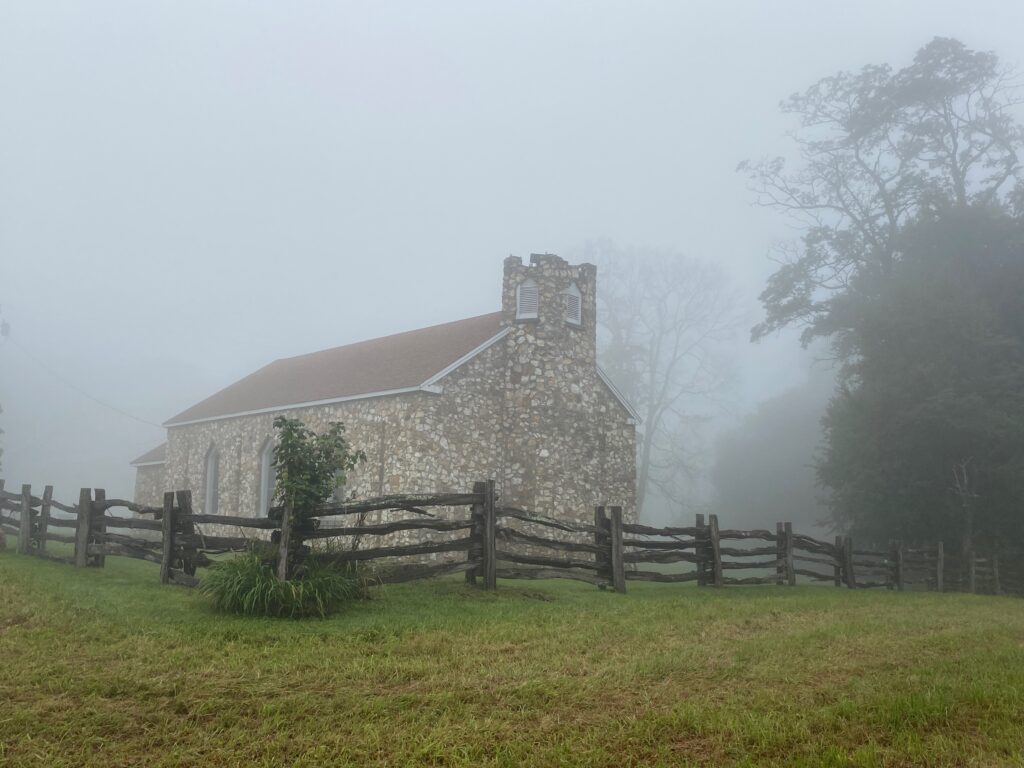Jeff Garrison
Bluemont and Mayberry Churches
April 2, 2023
Matthew 21:1-12
At the beginning of worship:
Who is Jesus? And what does it mean to follow him? How would you answer these questions? What difference does the first question, who’s Jesus, make in our lives? How does it guide our attempts at following him? Ponder these questions as we worship. They were questions that was being asked the first Palm Sunday, too.
Before the reading of Scripture
Last week, we’ve finished working through Peter’s first epistle. This week, as today is Palm Sunday, we’re looking into the gospel of Matthew. In the 19th Chapter, we’re told that Jesus leaves Galilee, heading to Jerusalem. A large crowd follows him.[1] He now arrives. All four of the gospels tell of Jesus’ entry into the city and each provides different insights. We refer to this day as Palm Sunday, but only one of the gospels, John’s, tells us the crowd waved palm branches.[2] Matthew just says they cut branches and spread them on the road. It appears to have been a joyful party, but as we know the joy of the day will quickly fade as the week wears on.
Read Matthew 21:1-11
One Summer: America 1927
I have been listening to a book by Bill Bryson, titled One Summer: America 1927. It was an amazing summer in our nation. Babe Ruth was knocking the ball out of the park. He set a home run record for a season that stood until Roger Maris came along. President Calvin Coolidge, not known as a man of many words, made a sparse announcement when on vacation in South Dakota. He would not seek his party’s nomination for the Presidency in 1928. Also in South Dakota, workers were carving out the faces of Presidents on Mount Rushmore. Ford Motor Company shut down the manufacturing of Model Ts and retooled for the Model A.
But probably the most exciting thing to happen in the summer of 1927 was the race to fly a plane from New York to Paris. The excitement focused on large planes with crews, but in came a lone pilot with backing from some businesses in St. Louis. Charles Lindberg, flying the Spirit of St. Louis, he won the prize. When he returned to America, he received, up to this point in history, the largest ticket-tape parade in New York City. Tons of paper was thrown out the windows along the parade route.[3]
Of course, looking back at 1927, it seemed so idyllic. As a nation, America was on the top of the world. Few people were aware that just around the corner the Great Depression would descend. And after that, there would be war unlike the world had ever seen.[4]We might draw a similar analogy to this day in Jerusalem in roughly 30 AD. Excited people shouted “Hosanna.” Everyone was excited. But darkness would descend and a few days later some of those same people would shout, “Crucify.”
Our text begins with Jesus and the crowd approaching the Holy City. Around the Mount of Olives, Jesus sends a couple of his disciples into a village ahead to procure an animal for him to ride into the city. We’re not told Jesus had all this worked out in advance. There’s a mystery here. How did Jesus know that there would be a donkey and a colt waiting? Was he somehow able to work it out in advance, without anyone knowing? In the days of walking, that seems unlikely. After all, he couldn’t call ahead.
Or did Jesus employ his divine powers? We’re not told. The same goes with the response Jesus gives the disciples if they’re challenged for taking the animals. Tell them the master needs it. What farmer would lend out their beasts of burdens without collateral and with just the promise that this unseen master would return it?
If I’d been one of the disciples, I might have resisted. Why go into the unknown when you could return to a place you already been? Why take part in what feels like petty larceny? Of course, there were no Avis donkey rentals back then. But still, it seems strange. I’d prefer Jesus to tell me to go back to that place where we saw a donkey waiting by the road and where they knew the owner. But Jesus always calls us into an unknown future.[5]
I had this conversation with a parishioner this week about no knowing what’s next in our lives. It’s often scary if we pause long enough to think about our situations. We’re called to go forward, into new territory, trusting that Jesus, the good shepherd, travels with us.
Matthew tells us that what happened fulfilled prophecy and then quotes from the Prophet Zechariah a passage about our king coming, humbled, and riding on a donkey.[6] The disciples are told in Matthew to bring two animals, a donkey and a colt. This has created some confusion. Did Jesus ride both animals, balancing up on the backs of each like some kind of circus performance? Maybe he even held the reigns in his teeth as he waved to the crowd? Probably not. Matthew also emphasizes the humility of Jesus’ entry into Jerusalem, and that would be showing off.[7] More likely, Jesus rode the donkey while the colt, perhaps not even weaned, tailed behind, staying close to his mom.[8]
We’re told the disciples put their cloaks on the donkey for Jesus to ride it. Donkeys are not normally ridden straddled, like a horse. Instead, the rider sits to the side of the beast. Other cloaks were spread on the path, along with tree branches. The crowd began together as they approached the city walls. As they are pilgrims coming for the Passover, they cry out the words from Psalm 118, “Hosanna to the Son of David! Blessed is the one who comes in the name of the Lord! Hosanna in the highest.”
Psalm 118 celebrates victory. God has given victory to the one coming into the city who then returns thanks for God’s steadfast love. God has taken the stone discarded by the builders and made it the cornerstone.[9] The Psalm captures the hope of the people that there be a new king on David’s throne, but in a way this Psalm seems out of place. While the Psalm celebrates victory,[10] Jesus heads to his death. And while his followers at this point don’t understand, Jesus knows.[11] The weight of this knowledge must have weighed heavy on his heart. They cheer Jesus on, a truth that should hang over us on Palm Sunday, for the crowd will soon turn on Jesus and demand he be crucified.
But before that, they wonder, “Who is this?” This little parade seems to have really shaken Jerusalem. Our translation, in verse 10, said the whole city was in turmoil, but the word used in Greek for turmoil, is the Greek word from where get the word seismic. In other words, the city was shaken to the core, as if in an earthquake.[12]
This word is used only in three places in Matthew’s gospel. The first is when the Magi come to Jerusalem asking about the birth of the Messiah.[13] The people in the city were bothered. Why did they need a king when they had Herod. The second time is here. The word will be used once more, on the day we recall this Friday, during the crucifixion. That was when a real, not metaphorical seismic event happened. There was a real earthquake. At that time the temple curtain ripped into two halves while graves opened.[14]
So, the crowds ask who this Jesus is. I assume those with Jesus pointed out that he is a prophet from Nazareth. But, of course, Jesus is more than a prophet. In the week ahead, we’ll see that he’s also the Chief Priest, and the sacrifice. And then, we’ll learn of his defeat of death and that he is a king that is above all kings. But that’s to come.
We’re left this Sunday with the question of the crowd. Who is this man we call Jesus? And if we believe he is the King as well as the Prophet and Priest, then how do we respond to him? Are we willing to go into the future where we have no control but can only trust him. For that’s what we’re called to do. Amen.
[1] Matthew 19:1-2.
[2] John 12:13.
[3] Bill Bryson, One Summer: America 1927 (Random House, 2013).
[4] Bryson discusses a secret meeting by the head of the Federal Reserve along with banks in Great Britain, France, and Germany, whose decisions have been partly to blame for the worldwide Depression.
[5] This idea came from MaryAnn McKibben Dana’s sermon on this passage on the website, “A Sermon for Every Sunday.
[6] Zechariah 9:9.
[7] Mathew leaves out a piece of what Zechariah said. The prophet said, “triumphant and victorious is he, humble and riding on a donkey…” The “triumphant” part is missing in Matthew, as he emphasizes the humility of Jesus. See Frederick Dale Bruner, The Churchbook: Matthew 13-28 (Grand Rapids, MI: Eerdmans, 2004), 355.
[8]See Douglas R. A. Hare, Matthew: Interpretation, a Biblical Commentary for Teaching and Preaching (Louisville: John Knox Press, 1993), 238-239.
[9] Psalm 118:22.
[10] Everything said in the Psalm “portrays the celebrant’s deliverance as the work of the Lord.” James L. Mays, Psalms: Interpretation, A Biblical Commentary for Teaching and Preaching, (Louisville, KY: John Knox Press, 1994), 377.
[11] According to Matthew, at this point, Jesus has referred to his upcoming death three times, the last being in Matthew 20:17-19.
[12] Chelsey Harmon, “Matthew 21:1-11 Commentary. See https://cepreaching.org/commentary/2023-03-27/matthew-211-11-2 See also Bruner, 357.
[13] Matthew 2:4.
[14] Matthew 27:51-52.
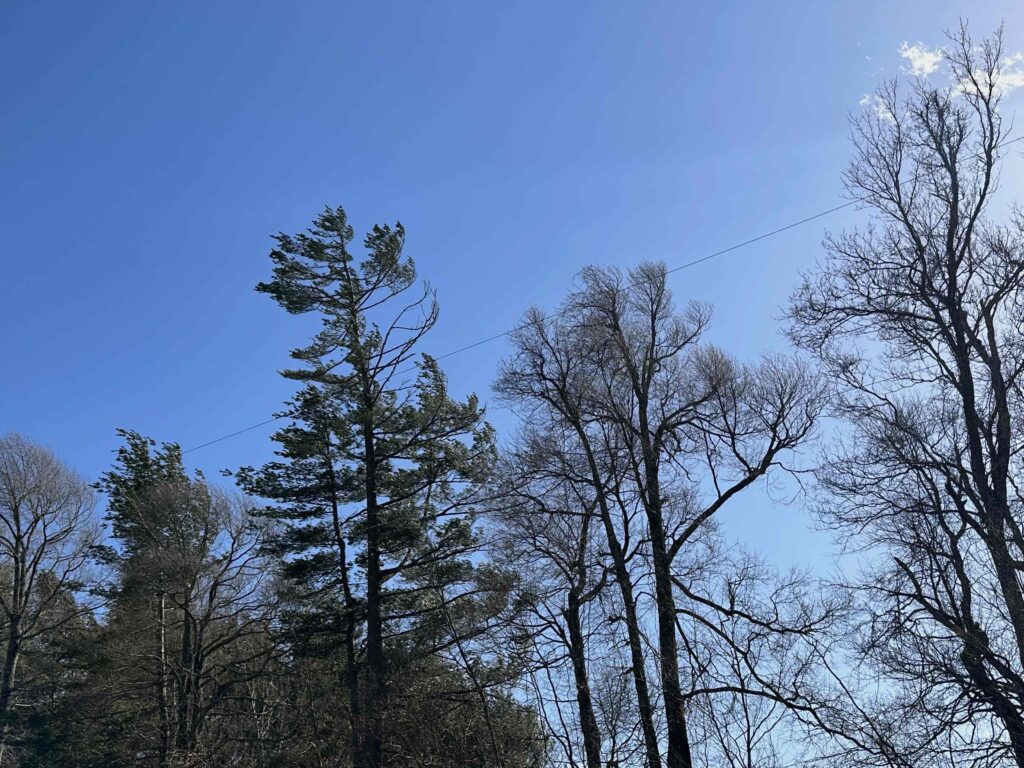
Yesterday, the branches were waving as if they lined the parade route.

